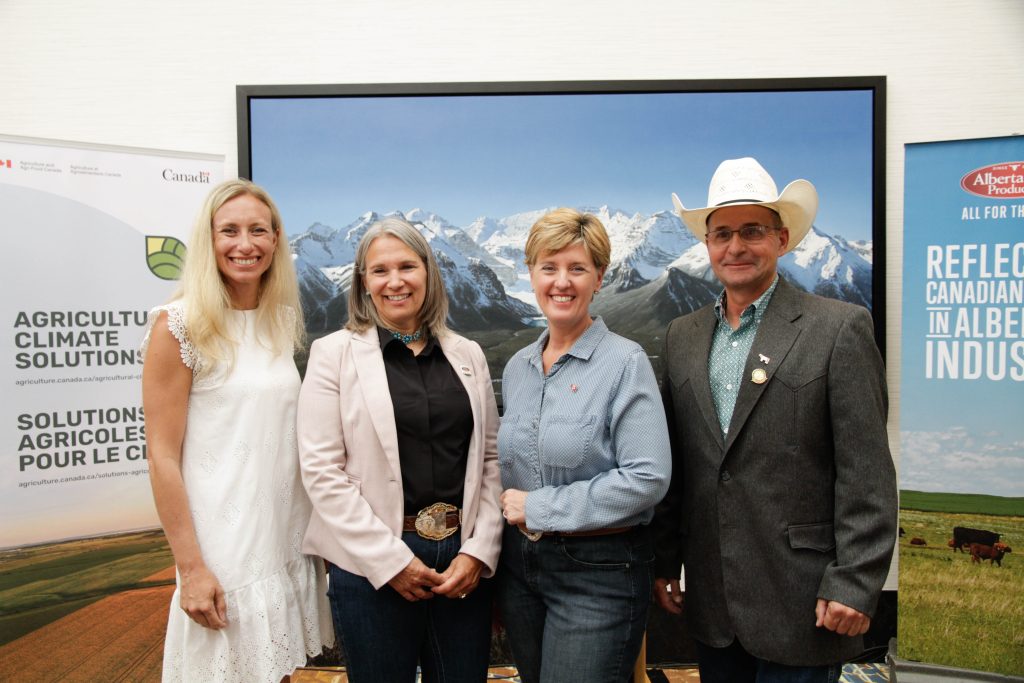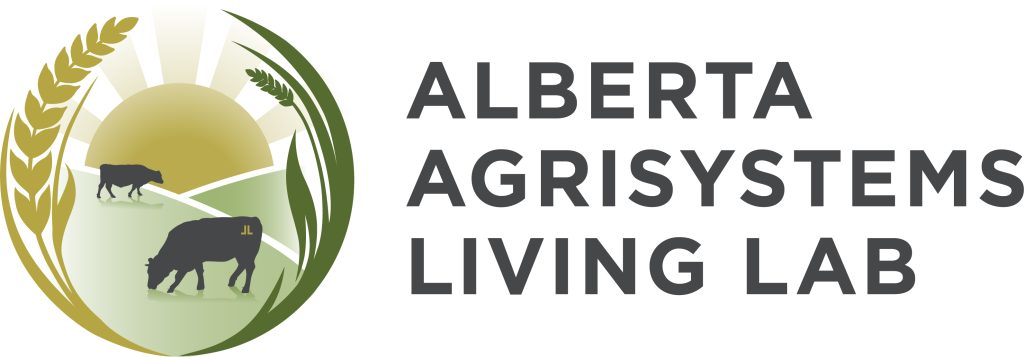AB Direct - Steers
Rail: ---
AB Direct - Heifers
Rail: ---
US Trade- Steers
Rail: 290.00 (IA)
US Trade - Heifers
Rail: 290.00 (IA)
Canadian Dollar
0.02

Living Labs brings research to reality
Alberta Beef Producers (ABP) is pleased to be leading a project that will benefit Alberta’s beef, forage, and cropping sectors through collaboration, innovation, and research.
In July, The Honourable Marie-Claude Bibeau, Minister of Agriculture and Agri-Food, announced the expansion of Agricultural Climate Solutions – Living Labs program, including an initiative led by ABP.

The Living Labs program was developed as part of the Government of Canada’s work to reach net zero emissions by 2050. The goal of Living Labs is to “accelerate the development and adoption of sustainable practices and technologies by Canadian farmers,” based on three core principles:
- Focusing on farmers’ needs.
- Broad and diverse partnerships.
- Testing in the real-life context.
“We typically think of these kind of things as research, but really it’s extension. It’s taking and putting these practices on the landscape and making them work in reality. And that whole co-development piece is a beautiful part of the extension with this, and collecting real-life, farm-scale data,” said Sheri Strydhorst, then with Alberta Barley and Alberta Wheat Commission.
Collaboration is key
For the Alberta AgriSystems Living Lab (AALL), the application alone required collaboration between all 16 partners, including agriculture commissions, Indigenous communities, non-governmental organizations, research institutions, and private industry.
That collaboration will continue as individual projects develop on farms and ranches participating in the program.
What it will do
The goal of AALL is to co-develop beneficial management practices (BMPs) that work on-farm, offering real value to the environment and to producers. That means working directly with experts to determine what BMPs a producer might be interested in implementing on their operation and determining how best to undertake that implementation for each individual operation. Preferably, these will be practices that improve profitability or productivity, while also demonstrating some potential environmental benefits, such as improving carbon sequestration or reducing greenhouse gas emissions (GHGs).
BMPs will focus on the following key areas:
- Crop rotations and cropping systems,
- Land use changes,
- Grazing management,
- Livestock feeding,
- Nutrient management, and
- Increasing carbon storage on the whole farm.
“Ideally we’d like to see some of these practices spread beyond our core participants and out into the wider community across agricultural producers in Alberta,” says Karin Schmid, ABP’s Beef Production and Extension Lead.
“And so part of the socio-economic analysis is looking at those adoption levels and how they change and may be impacted by the Living Labs Program. If we see that peer-to-peer networking and learning experiences having an impact, I think it might even revolutionize some of the models and some of the ways we think about doing extension and adoption work within agriculture.”
Where it’s at now

Since receiving approval, the ABP-led initiative has hired contract staff, including Brian Karisa as the Director, and Adrienne Herron as Knowledge Translation and Transfer (KTT) and Engagement Lead. Kristine Dahl will be an Engagement Facilitator located in the Edmonton/Central and Lethbridge/South Regions.
The Initiative is also now branded, with its name, a logo, and its own website: agrisystemsll.ca.
Next steps
Next, project staff will work to organize information and recruitment sessions, with the goal of recruiting approximately 50 beef, forage, and cropping producers as core participants.
“There’s lots of opportunity for producers if they’ve been thinking about trying something but are not sure where to start,” says Schmid. “That’s where our researchers and their expertise can really fine-tune that and set them up for success right out of the gate.”
Producer participants will be primarily located in three geographical regions: the Peace region, Edmonton/Central region, and Lethbridge/South region.
This article was first published in Volume 2 Issue 4 of ABP Magazine (October 2022). Watch for more digital content from the magazine on ABP Daily.
Want a physical copy of ABP Magazine? Update your contact information and receive it straight to your mailbox!
Leave a Comment
Add abpdaily.com to your home screen
Tap the menu button next to the address bar or at the bottom of your browser.
Select ‘Install’ or ‘Add to Homescreen’ to stay connected.



Share this article on